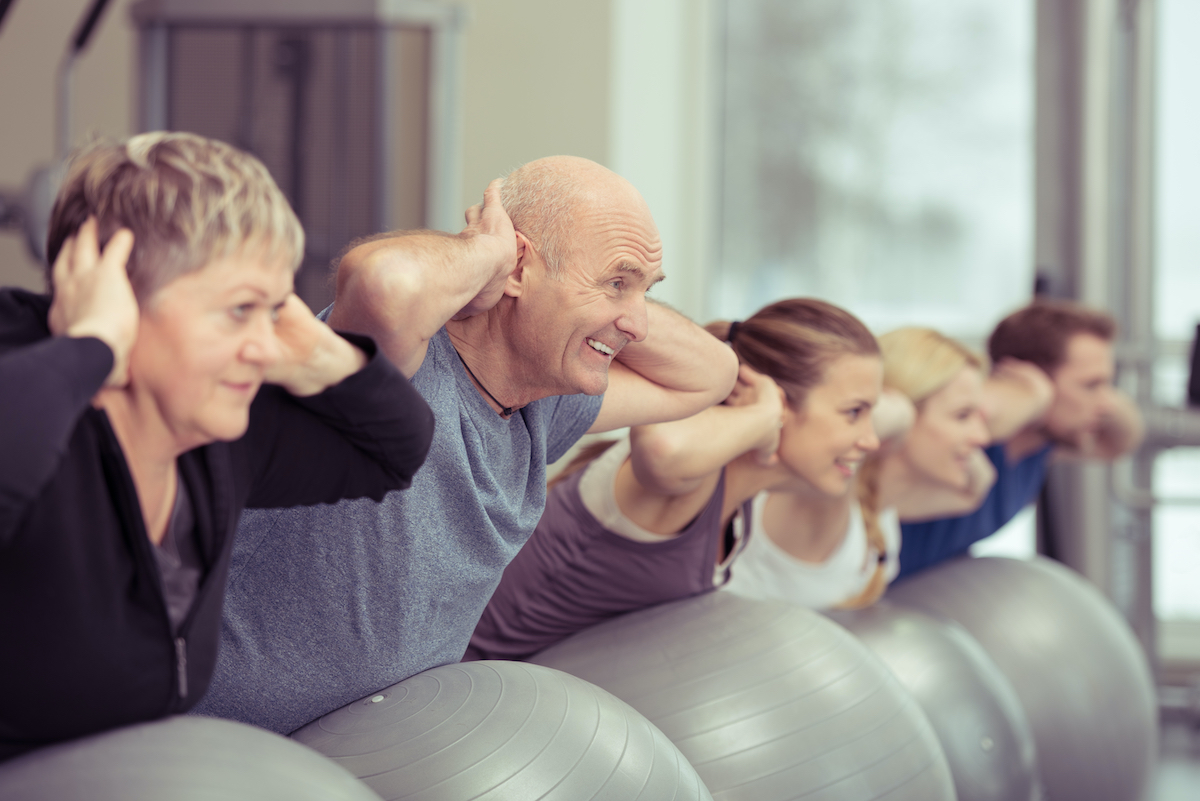The Secret Mental Trick for Getting a Lean Body, Say Experts

For many of us who are chronic procrastinators, it comes as a surprise to learn the true reason why we continually decide to put things off: We're lacking in self-compassion. According to some of the top psychologists in the field, when we procrastinate, we're not putting off the task at hand, but rather putting off the negative feelings we associate with that task.
"I argue that procrastination is an emotion-focused coping response," Timothy A. Pychyl, Ph.D., a professor psychology at Canada's Carleton University and one of the world's foremost experts on the science of procrastination, has explained. "We use avoidance to cope with negative emotions. For example, if a task makes us feel anxious, we can eliminate the anxiety if we eliminate the task—at least in the short term. The key relation here is that negative emotions are causal to our procrastination."
This is why one of the best things you can do to fight procrastination and be more productive is to practice more self-compassion and self-empathy. For some scientific proof, know that according to a study published in the journal Personality and Individual Differences, college students who forgave themselves for procrastinating actually procrastinated less afterward.
Now, if getting a lean body is your goal—which takes commitment, discipline, hard work, and a dedication to a healthy lifestyle—leading trainers and health experts will tell you that you need to do the exact same thing. Improving your mindset is the first step to getting that lean body you've ever wanted.
"Have empathy for yourself," Harry Doré, a personal trainer at David Lloyd Clubs in the UK, recently explained to The Telegraph. "If you have a bad session that is disheartening, it's about thinking in the long-term. You might have had a busier day so you might be a bit more fatigued, you might not have eaten enough. It's not making excuses, but understanding that two steps forward, one step back, is still a step forward. You'll always have minor setbacks but it's just how you power through them."
According to Dayna Lee-Baggley, Ph.D, author of Healthy Habits S*ck, self-compassion is directly "linked to improved health, life satisfaction, and well-being; and to lower levels of anxiety, depression, and stress…. It is necessary to maintain healthy habits in the long run."
This advice may surprise hardcore gym goers who believe that you need to actually be harder on yourself to see gains. But the truth is, if you're looking to transform your body and maintain that transformation, simply being kinder to yourself is one of the single most important things you possibly do every day. For a few ways to be more self-compassionate, read on, because here are a few great tips from experts. And for more ways to help you get fit, don't miss the Exercise Tricks for Reducing Stubborn Body Fat, Say Experts.
Acknowledge Other Factors With a "Reality Check"

Did you skip a workout, or even bail on one half-way? While your first step will be to blame yourself and generally make yourself feel worse—and make you far likelier to bail on future workouts—consider the other factors at play. Maybe you felt off—or maybe you were too distracted. In short: That's OK.
"One way to be more compassionate [is] called 'the compassionate reality check,'" writes Lee-Baggley. "Think of how many factors influence [your] weight that are not your choice and not your fault. You didn't choose to be born in this era in the Western world where food is plentiful, you didn't choose your genetics, you didn't choose your parents, you didn't choose to have a brain that is hardwired toward unhealthy habits. All these things influence weight, and they are not your fault and not your choice…"
So the next time you skip the gym, she asks: "Can you respond to yourself with kindness? Can you recognize that everyone has setbacks, and that whatever 'mistake' you made you were likely just acting the way millions of years of evolution have shaped you to act? Can you acknowledge that because of all kinds of factors that were not your choice, weight management is really hard?"
Only then will you make it easier to get back into the gym. And for more great exercise advice, don't miss these Lean-Body Secrets from Exercise Experts Over 50.
Take a Few Minutes to Write a Letter to Yourself

According to the health experts at Harvard, cultivating more self-compassion is indeed a trainable skill, and one great way to practice more self-compassion is to speak directly with yourself and be honest about your feelings. "Think of a situation that caused you to feel pain (a breakup with a lover, a job loss, a poorly received presentation)," they advise. "Write a letter to yourself describing the situation, but without blaming anyone—including yourself. Use this exercise to nurture your feelings."
Be More Mindful

"Even a quick exercise, such as meditating for a few minutes, can be a great way to nurture and accept ourselves while we're in pain," say the experts at Harvard.
Accept That You're Not Perfect

"Having the odd blip, that's just being human," Jessamy Hibberd, a clinical psychologist, explained to The Telegraph. "You don't have to give up or throw it all away. Be conscious of those things, those problem areas. If you know you reach for the [cookie jar] when you feel crap, put them out of reach and do something else. It's so easy to prejudge stuff and to rule yourself out—to say you're not a healthy person, so why even try? Often we find ourselves getting stuck into these ideas of how we are and how we do things, but it's freeing to remember that you can try something and change your mind later." And for more great exercise advice, check out The 15-Second Exercise Trick That Can Change Your Life.








